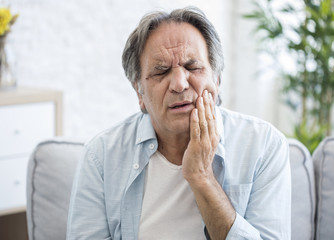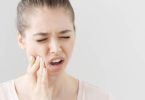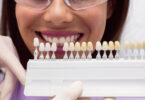Who wants to get old? Everyone wishes to live longer, but no one wants to get older. About 8.5% of the total population is over 65, and the number is growing rapidly with an expectation to reach 20% by 2050. Almost 25% of people lost their natural teeth after crossing fifties. Technologies have truly brought revolution in the field of medical diagnosis.
Teeth are the hardest part of our body, but everything degrades with time. Aged citizens have to face a lot of health issues among which Dental Issues are most common and often overlooked. Hence it becomes important to have an understanding of various health-related problems for people over 50. Here are the major dental problems.
5 Major Dental Issues For People Over 50
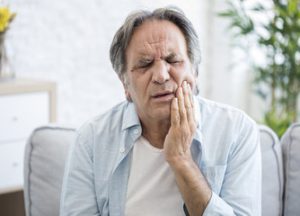
The following are five of the most common dental issues affecting people over 50.
1. Dry Mouth (Xerostomia)
Saliva keeps our mouth wet, and we feel dry mouth if salivary glands reduce the production of saliva in our mouth. Saliva also neutralizes the acids produced by germs and hence protect from tooth decay. Dry mouth increases alarmingly between age 50 to 70.
A general perception people have about dry mouth is that aging is responsible for this disease, which is not true. Medications are the biggest contributor to dry mouth, which is very common in people above 50 years old. There are hundreds of medications that can result in dry mouth. If you feel dry and sticky mouth, difficulty in speaking, chewing and swallowing dry foods and bad breath for a long time, it is advisable to see a dentist. Dental problems also create a fluctuation in blood pressure, body temperature, pulse, and breathing rate.
In dry mouth condition, sipping water frequently may keep your mouth hydrated. Sugar-free gums like xylitol are also good remedies. Avoiding alcohol and caffeine prevents dry mouth. Smoking has a great contribution in dry mouth. Stop saliva reducing medications after consulting to your doctor.
2. Dental Caries or Tooth Decay
Bacterial breakdown of sugar produces acids in the mouth. Enamel, the uppermost layer of teeth, becomes soft and weak due to these acids. If this is left untreated, it develops into a cavity or hole eventually. This disease is commonly known as Tooth Decay.
The teeth undergo gradual deterioration throughout life. And by the time you cross the fifties, they become so weak that the threat of bacterial infection increases. Toothache is a common symptom and is often associated with sensitivity.
Toothpaste containing few per cents of fluorine can be extremely effective against tooth decay. Always consult a dentist before using fluorinated water as excessive fluorine may dissolve your teeth. Vital signs like blood pressure changes with age. Tooth decay increases the blood pressure even more. You may use clove oil and temporary over-the-cover (OTC) filling material after consulting to the dentist.
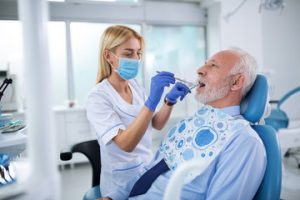
3. Oral Cancer
54,000 people diagnosed with oral cancer and 13,500 die due to oral cancer every year in the U.S. alone, according to The Oral Cancer Foundation. Hundreds of thousands die worldwide. Tobacco is the biggest reason behind oral cancer and is predominant in males. As the age increases, you are more vulnerable to the oral cavity since immunity decreases with age.
A sore or patches in the mouth for more than 14 days should be shown to a professional. Any kind of painless lump inside the mouth also signifies the chances of having oral cancer. The persistent awful smell from mouth and tonsils may also occur. In some cases, you can observe a change in voice and weight loss. Unfitted dentures create irritation in the mouth, which may lead to chronic oral problems.
Oral cancer is difficult to notice initially, but regular oral check-ups can easily counter it. Oral cancer critically affects the overall functioning of the body. One thing to remember is that most of the diagnosed patients defy the oral cavity.
4. Gingivitis
Bleeding gums are the most common indicator of Gingivitis. Dental plaque is a natural film builds up on teeth. It is also home to anaerobic bacteria like Treponema denticola and Porphyromonas gingivalis. These bacteria residing in plaque release toxins that corrode the gums resulting in red, fluffy, and swollen gums. Receding gums also comes along with Gingivitis. Some people grind their teeth while sleeping. This can be a serious threat to gums, especially for people over 50.
In acute cases, Gingivitis develops into periodontitis in which can detach gums from teeth and eventually loss of teeth may occur. An aged person having diabetes has more risk of gum issues. Stress and depression also invite the incidence of gums problem.
Dentists use instruments that measures pocket depths along the teeth to find out the state of Gingivitis. An easy recommendation to keep gum disease away from you is to see professionals on a weekly basis. Rinsing mouth daily with antimicrobial mouthwash also helps.
5. Crowding of teeth
The lower jaw becomes thinner and grows forward with age. This causes the fibers to contract and pull the teeth closer to each other resulting in crowding. This can also amplify the other oral problems as crowded teeth are difficult to clean. It makes chewing and eating difficult since food particles get struck by the crowded teeth.
An orthodontist mostly put a brace on your teeth and recommend to use a retainer to fix the crowding problem. As it is the most prevalent tooth problem, crowding has been vastly researched and cured. Since cellular activity is less in elder people, orthodontic treatments are much difficult for them. Their tissues don’t respond promptly to the biological changes.
Whatever may be the disease, prevention is always better than cure. With the advancement in the medical field, it has become easier and safer to get even the most complex of dental treatments. Good dentist offices are well equipped with the latest equipment, such as vital signs monitor, etc.
People over 50 often find it challenging to share their health problems with their relatives. Health watches and bands are available everywhere, which uses modern monitoring systems to give the latest status of blood pressure, pulses, body temperature, and breathing rate. Making this accessible to aging people will be a great step. People with a lack of proper information consider dental problems inferior, but these diseases are highly painful and deadly.
ALSO READ:
- How to Overcome Dental Anxiety: 5 Effective Steps That Work
- 6 Best Home Remedies to Treat Wisdom Tooth Pain
- 7 Home Remedies For Toothache
- 5 Natural Remedies For Gum Disease
- Top 5 Benefits of Having Wisdom Teeth Removed
- 7 Options To Consider When You Have A Missing Tooth

